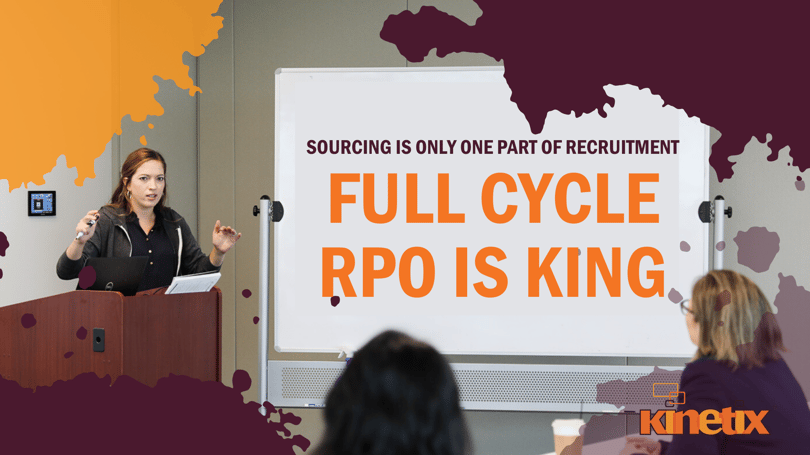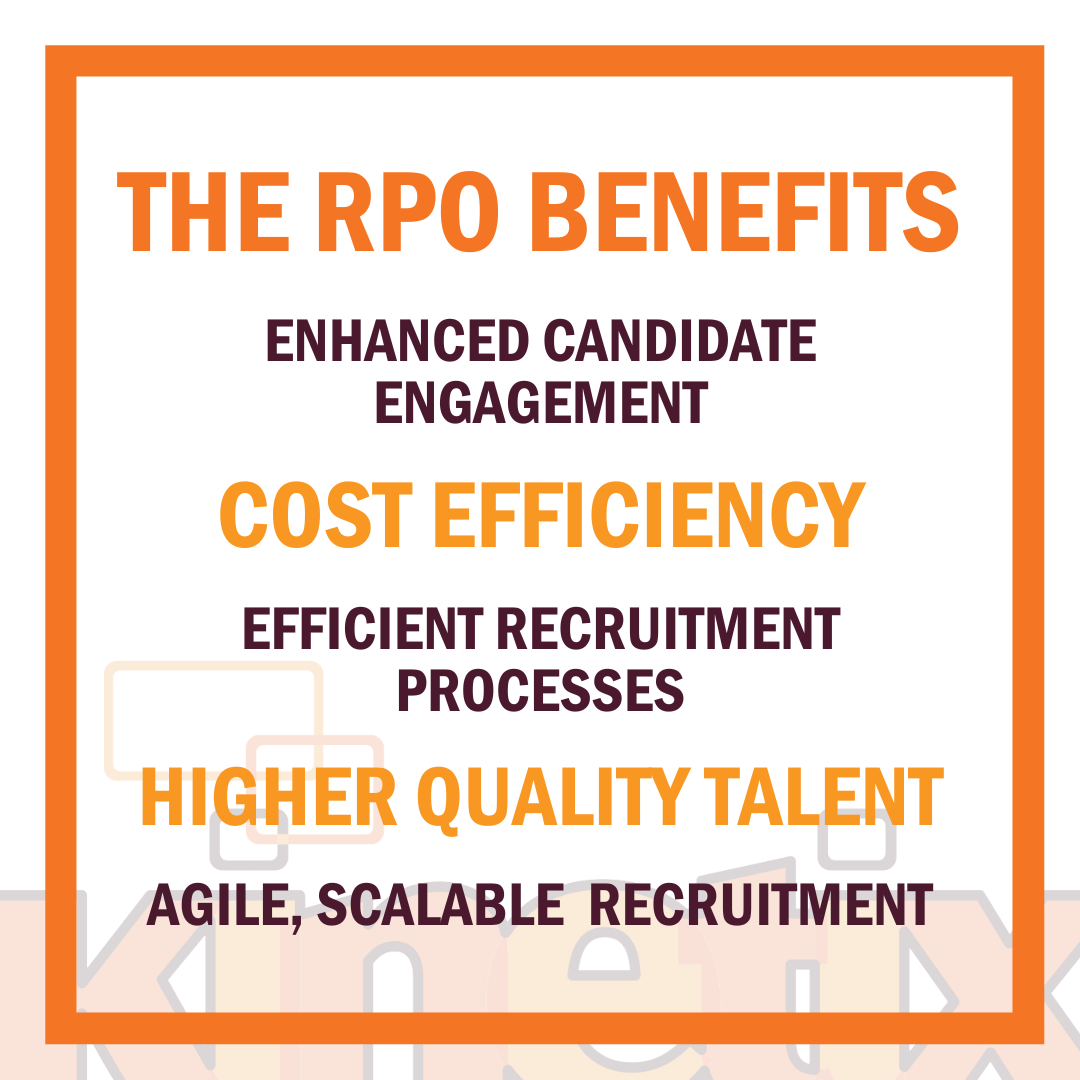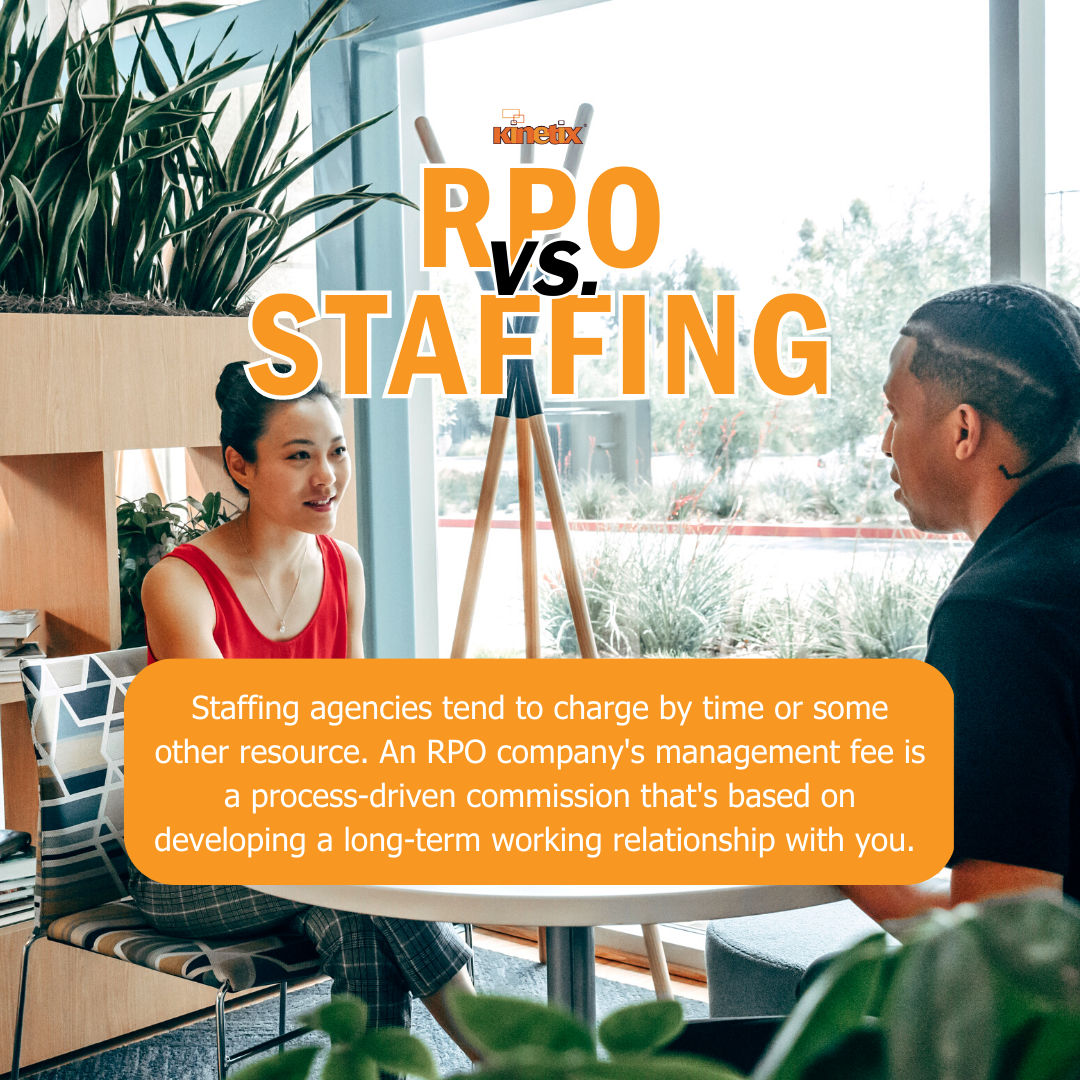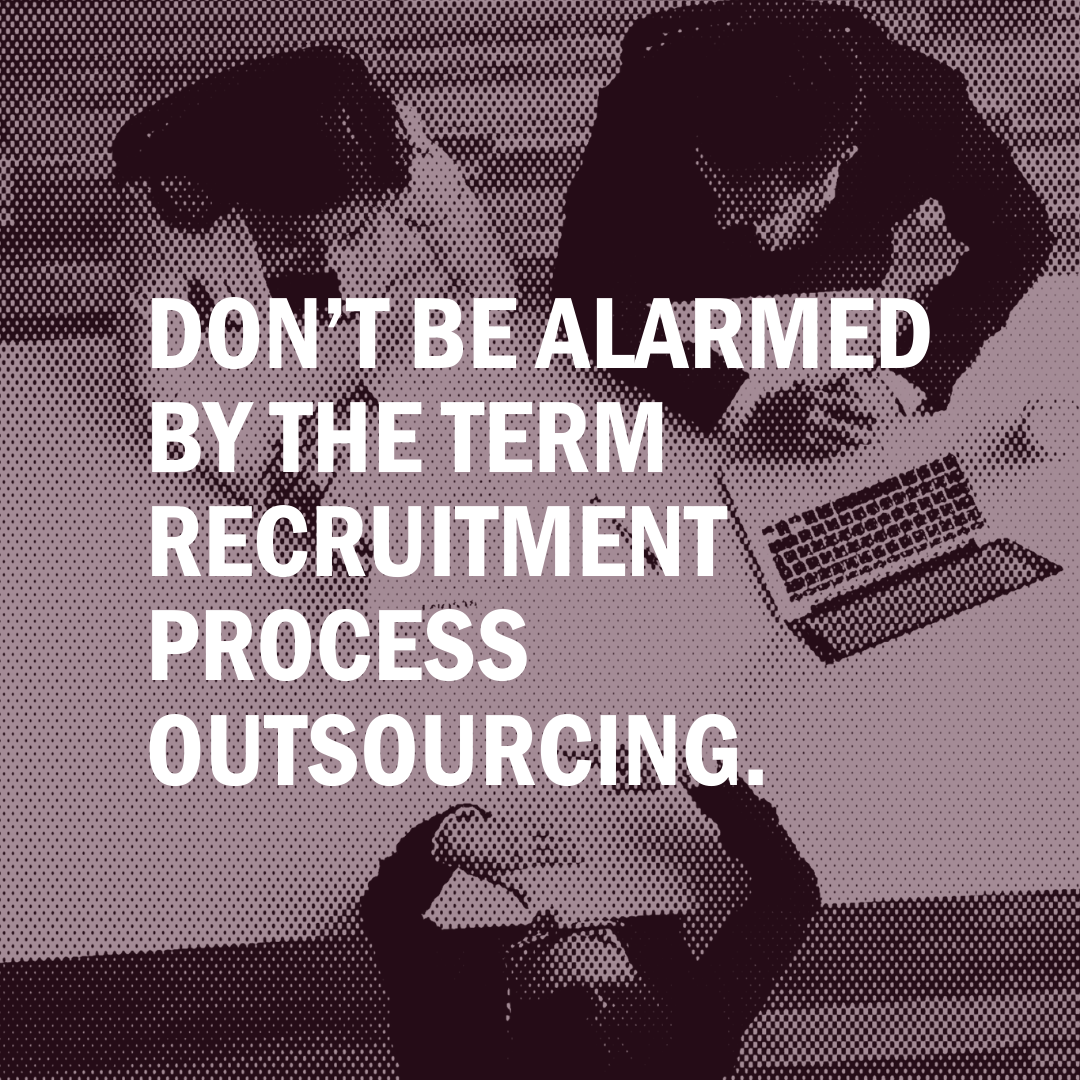
Table of Contents
- What Are The Different Types of RPO Services?
- Far-Ranging Benefits of RPO Recruitment
- RPO Pricing Models
- What Are Signs Businesses Need RPO?
- Ideal Industries for RPO Recruitment
- Potential Pitfalls and Challenges in Implementing RPO
- Ready for RPO Recruitment
Recruitment Process Outsourcing, or RPO, has emerged as a powerful strategy for businesses seeking to streamline and optimize their hiring process.
In comparison to traditional recruitment agencies, RPO involves transferring all or part of a company's recruitment activities to an external service provider.
As the business landscape becomes increasingly competitive, understanding RPO and its various facets is crucial before deciding on a provider.
This article will guide you through everything you need to know about RPO recruiting.
What Are The Different Types of RPO Services?

On-Demand RPO
On-demand RPO refers to a flexible service model that provides recruitment support as and when needed. This model is beneficial for companies with fluctuating hiring needs.
The advantage of on-demand RPO is its flexibility, while its disadvantage lies in the unpredictability of costs and resources.
Function-Based RPO
Function-based RPO is more focused, as it concentrates on specific roles or departments within a company.
For instance, a company might outsource the recruitment of IT staff while maintaining control over other hiring areas.
Function-based RPO allows for targeted expertise but may lead to less cohesion in a company’s recruitment strategy.
Full-Cycle RPO
As the name implies, full-cycle RPO manages the entire recruitment process.
From job posting and candidate sourcing to onboarding, every aspect is handled by the RPO provider.
While this offers a comprehensive solution and reduces the internal HR workload, it also means relinquishing a high degree of control over your hiring process.
Far-Ranging Benefits of RPO Recruitment

RPO can provide significant advantages in terms of efficiency, cost savings, quality of hire, and strategic alignment. Understanding the RPO’s meaning in recruitment is key to unlocking these benefits.
Here are some of the key benefits:
- Efficiency: RPO providers specialize in recruitment, meaning they have specific recruiting technology and methodologies to streamline and accelerate the hiring process. The result is a shorter time-to-hire, significantly benefiting your business operations.
- Cost Savings: An efficient recruitment process can lead to substantial cost savings. Additionally, RPO companies can provide scalable solutions, allowing businesses to pay for the recruitment services they need when they need them rather than maintaining a large, full-time recruitment team.
- Quality of Hire: RPO providers often have extensive networks and advanced tools for sourcing candidates, which can improve the quality of hire. They can also provide services like employer branding, which can attract high-quality candidates to your organization.
- Scalability: Recruitment needs can fluctuate, and RPO provides the flexibility to scale your recruitment activities up or down depending on current needs. This is particularly beneficial for businesses with seasonal fluctuations or periods of rapid growth.
- Focus on Core Business: Internal teams can focus on core business functions by outsourcing recruitment activities. This can lead to improved performance and productivity in other business areas.
- Market Insights: RPO providers have a broad view of the labor market and can provide valuable insights into trends, salary benchmarks, and competitive information, helping you make informed strategic decisions.
- Enhanced Employer Brand: Many RPO providers offer employer branding services, helping to create a compelling image of your company in the job market. This can attract high-quality candidates and improve your overall hiring outcomes.
- Improved Compliance: Recruitment-related regulations can be complex and can lead to penalties. RPO providers are experts in recruitment compliance, helping to mitigate these risks.
- Strategic Approach: RPO isn't just about filling vacancies; it's about creating a strategic approach to talent acquisition that aligns with your overall business objectives.
RPO Pricing Models

RPO services are billed differently depending on the provider.
On-Demand RPO
This pricing model charges based on the number of hires, which is ideal for businesses with fluctuating recruitment needs.
Monthly Fee
This model involves a fixed monthly charge, providing predictable costs for companies with constant hiring needs.
Hybrid Model
Some providers offer a mix of the two, adjusting based on your specific requirements.
What Are Signs Businesses Need RPO?
.png?width=1080&height=1080&name=Start%20a%20Partnership%20(4).png)
Rapid Business Growth
If your business is rapidly expanding, your HR team is likely struggling to keep up with the pace of hiring required.
This lag can result in roles filled too slowly, harming your growth strategy.
RPO solution services can help manage this increased demand for talent with workforce planning that ensures roles are filled quickly and efficiently.
Difficulty Attracting Top Talent
Attracting the right talent is crucial for business success. If you're struggling to attract top-tier candidates, it may be time to consider RPO.
RPO providers have specialized tools and techniques to source high-quality talent, often possessing broader networks and resources than internal HR teams and hiring managers.
They also specialize in employer branding strategies, which can significantly increase your company's appeal to potential candidates.
High Turnover Rates
A high employee turnover rate can signal problems in your hiring process. It may mean you need help finding appropriate candidates for your company or issues with onboarding and retention strategies.
An RPO provider can help analyze and address these problems, improving the quality of hires and implementing strategies to increase retention.
Inefficient Recruitment Processes
An inefficient recruitment process can be costly in terms of time and resources.
If your hiring process is overly complex or bureaucratic, causing delays or reducing effectiveness, an RPO provider can help.
They can streamline your recruitment process, making it more efficient and cost-effective.
Need for a More Strategic Approach
Recruitment shouldn't just be about filling vacancies but also contributing to your long-term business goals and strategy.
If your current hiring process is more reactive than strategic, RPO might be the solution.
RPO providers offer strategic talent acquisition, helping to align your recruitment activities with your overall business objectives.
Lack of Key Recruitment Metrics
If you cannot measure the success or efficiency of your recruitment process, it's a strong sign you might benefit from RPO.
Effective recruitment strategies rely on metrics like time-to-hire, cost-per-hire, and quality of hire. RPO providers specialize in these measurements, providing critical insights into your recruitment process and how to improve it.
Each of these signs individually could indicate that your business might benefit from RPO.
If you're seeing several of these indicators, it's time to seriously consider bringing in an RPO provider to improve your talent acquisition processes.
Ideal Industries for RPO Recruitment

While RPO can bring value to a broad range of industries, there are specific sectors where the benefits can be particularly pronounced due to their unique recruitment challenges and needs.
Let's delve deeper into some of these industries.
IT and Technology Industry
The IT and technology industry faces a constant battle for top talent.
With rapid technological advancements and a persisting skills gap, finding and retaining highly skilled IT professionals can be challenging.
RPO providers can provide a significant advantage here, with their extensive networks and innovative sourcing strategies helping to attract top talent in this competitive market.
Healthcare Industry
Healthcare is another industry where RPO can prove highly beneficial.
With the ongoing global health crises, there's an increased demand for healthcare professionals. RPO can help meet these demands quickly and efficiently.
Moreover, healthcare positions often require specific qualifications and licensing, and RPO providers with a specialty in healthcare are adept at sourcing candidates who meet these requirements.
Manufacturing Industry
The manufacturing industry often deals with high-volume hiring, which can be challenging to manage without external assistance.
RPO providers can help streamline the hiring process, making it easier to handle large-scale recruitment drives.
Also, manufacturers often need a mix of skill levels, from highly skilled engineers to entry-level factory workers, and an RPO's broad sourcing capabilities can meet these diverse needs.
Financial Services Industry
The financial services industry requires highly specialized roles, from risk analysts to investment advisors.
Moreover, these roles often require a high degree of trust and responsibility, making the vetting process particularly important.
RPO providers with experience in this sector understand these unique needs and have the resources to find high-quality candidates suited to these roles.
Retail Industry
The retail sector experiences high turnover rates and seasonal hiring, making the recruitment process complex and demanding.
An RPO provider can offer scalable solutions that adjust to these fluctuating hiring needs, providing stability and efficiency in recruitment.
Potential Pitfalls and Challenges in Implementing RPO

Implementing RPO, while offering numerous advantages, has potential hurdles. These challenges often arise due to poor planning, miscommunication, or a mismatch in expectations.
Here are some common pitfalls to be aware of when considering RPO for your organization:
Poor Communication Between Your Business and the RPO Provider
Effective communication forms the backbone of a successful RPO partnership.
Problems can arise if expectations, objectives, or feedback are not communicated effectively between your business and the RPO provider.
Ensure regular and open communication channels with your RPO provider to mitigate this.
Misalignment of Business Objectives
RPO works best when the provider fully understands and aligns with your business objectives. If the RPO provider doesn't fully comprehend your business needs, company culture, or long-term goals, it can lead to unsatisfactory outcomes.
Be clear about your objectives from the start, and ensure the RPO provider is willing and able to align their recruitment strategies with these goals.
Difficulty Adapting to Your Business Culture
An RPO provider must integrate smoothly into your company's culture to effectively attract and retain talent that fits well.
If there is a cultural misfit between the RPO provider and your business, it can lead to hiring candidates that aren't the right cultural fit.
During the selection process, make sure your potential RPO partner understands and appreciates your company culture.
Hidden Costs in the RPO Contract
While RPO can often lead to cost savings in the long run, hidden fees can occasionally arise. These can come in the form of charges for additional services not included in the initial agreement or unforeseen costs due to scaling needs.
To avoid unexpected costs, thoroughly review the RPO contract, ask about any potential additional charges, and insist on pricing transparency as possible.
Lack of Control Over the Recruitment Process
While one of the benefits of RPO is freeing up your HR team's time, some companies feel they've lost control over the recruitment process.
This can lead to unease and potential friction between your team and the RPO provider.
To mitigate this, establish clear roles, responsibilities, and oversight mechanisms from the outset, ensuring that your business retains appropriate involvement and control over the recruitment process.
Resistance to Change
Change can be difficult, and this includes implementing RPO.
Your internal team may resist the changes brought about by RPO, especially if they feel their roles are being threatened.
Prior to implementation, it's essential to communicate the benefits of RPO clearly to all stakeholders and to reassure any team members who may be affected by the changes.
Ready for RPO Recruitment? Work With The Best in the Business!

Partnering with an RPO provider is a strategic business decision that requires careful consideration. When evaluating potential RPO providers, it's essential to be aware of the qualities of an RPO provider that can make a significant difference in your recruitment process.
As one of the top RPO companies, Kinetix HR is committed to helping you navigate your options. Our approach is strategic, scalable, and tailored to your unique needs.
We specialize in transforming your recruitment process, optimizing talent acquisition strategies, and delivering top-tier candidates aligning with your company's culture and goals.
Are you ready to experience the difference a strategic RPO partnership can make for your company?
Let's start the conversation today. Contact us for a free consultation and find out how we can elevate your recruitment process.
